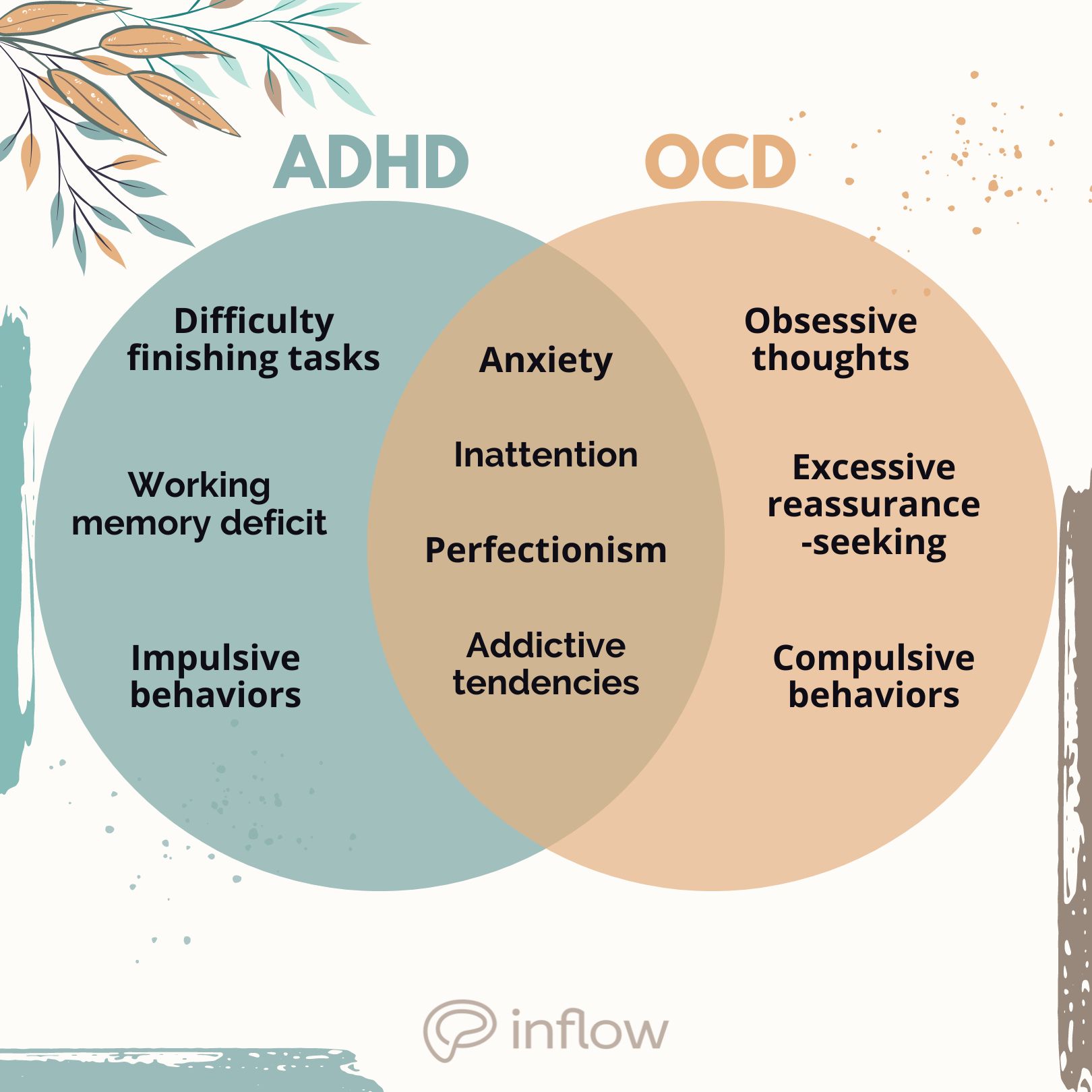September 2, 2024
Why Is Ocd Misdiagnosed And Exactly How To Get Diagnosed With Ocd?
Exactly How To Stop Examining Ocd? Obsessive-compulsive Condition Access Cbt Kids who have actually duplicated, distressing ideas are often detected with PTSD. The distinction is that with PTSD, the kid is keeping in mind something that actually happened, instead of points they fear. Maybe the most essential factor of noting the function of perfectionism with OCD, however, is to recognize just how OCD is various for everyone. Whatever personality traits a person has can concern play in the problem.The Link Between Tic Disorders and ADHD - Verywell Mind
The Link Between Tic Disorders and ADHD.

Posted: Mon, 06 Feb 2023 08:00:00 GMT [source]
Underuse Of Evidence-based Ocd Therapies
At NOCD, all specialists focus on OCD and get ERP-specific training. While lots of people experience these strange and even disturbing thoughts, most individuals don't register them as a problem in their lives. The issue is when they come to be not simply intrusive however compulsive.Instances Of Invasive Thoughts From Ocd
A person with a hand-washing compulsion can destroy the skin on their turn over time. An additional individual, rejecting to eat as a result of an obsession about choking or contamination, might end up being exceptionally slim and establish medical complications. Many people use "intrusive thought" and "obsession" mutually, however they're not rather the exact same. Like everybody else, people with OCD signs experience mental disease and obtain different sorts of invasive ideas; only a few of these become fixations. This aids us understand why someone with OCD can be unbothered by many intrusive ideas but totally hindered by others. Get psychological health and wellness updates, study, insights, and resources straight to your inbox. It may really feel overwhelming or frightening to consider confronting your ideas, yet remember that exposure job is done gradually, gradually, and with a lot of support. You can be knowledgeable about an intrusive thought without attempting to quit it. You can begin by attempting to identify that the thought is Symptoms of Panic Attacks trying to regulate you (for instance, by making you really feel the demand to do an obsession) and consciously challenging it. While it may seem like a good remedy, it's difficult-- and it does not always work. A lot of patients most likely to health care medical professionals and various other clinical and wellness specialists prior to they ever show up at a psychologist or psychiatrist's office. Therefore I think there are some ways that this could be much better comprehended in settings that individuals first go to, and it will certainly save people just a ton of time, and it conserves them a great deal of aggravation and discomfort. Individuals state, "I'm so OCD" at all times, which does not even syntactically make sense. No one says, "I'm so obsessive uncontrollable disorder." That doesn't even make rational feeling. While all children, particularly those who are very young, tend to have shorter interest periods than adults, some youngsters have far more problem focusing than others. When you have a frustration, you know there are several feasible causes, varying from the moderate to the really severe. When you see your doctor, she will likely ask you in-depth questions regarding how long the headaches have actually been happening, what kind of discomfort you are feeling, when they take place, and what other symptoms you're experiencing. Without a comprehensive analysis and examination, it would be unreasonable for your medical professional to identify you with a mind tumor or the influenza, both of which can provide you a headache. And, obviously, the treatment for a brain growth and an infection would look extremely various. Approving that we have much less control than we think over our thoughts can be very helpful in reducing the distress that often goes along with invasive thoughts. When a peculiar or traumatic idea pops intrusively into your mind, you label these ideas as unsafe because they are out of your control. This creates you to monitor the thought a lot more carefully, which can aid to create a fascination. The interplay between ADHD, Autism, and OCD is intricate and nuanced, with each problem lugging its very own complexities and subtleties. For those crazy about discovering the subtle differences and overlaps even more, I've put together a series of comprehensive write-ups. Each piece is made to peel off back the layers of how these conditions engage, offering further understandings right into their distinct and shared characteristics.- With this sort of alternative therapy, managing traumatic ideas and uncontrollable actions is possible.
- I was regularly just ruminating, emotionally reviewing my memories.
- This kind of therapy teaches you exactly how to modify the adverse thoughts and beliefs that contribute to your condition.
Why is OCD not taken seriously?

Social Links